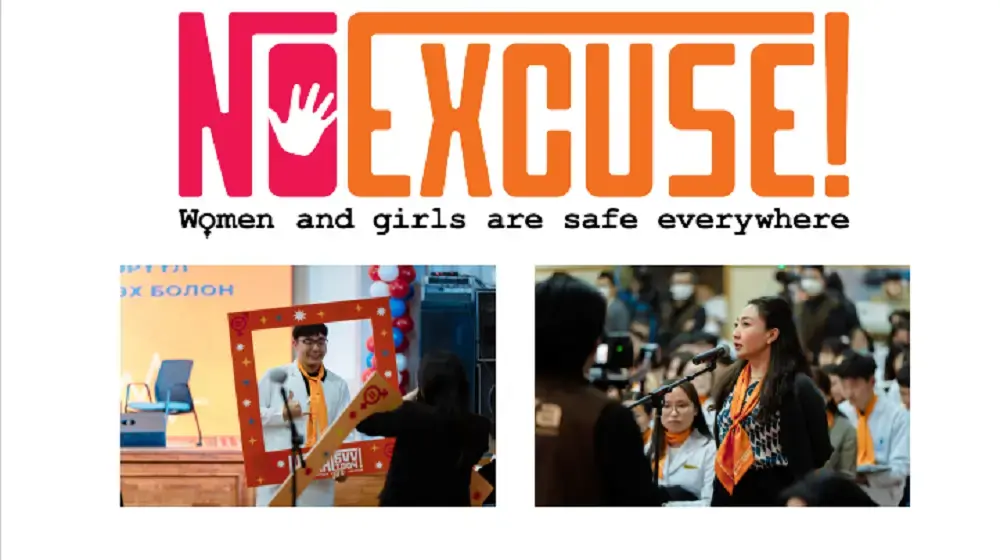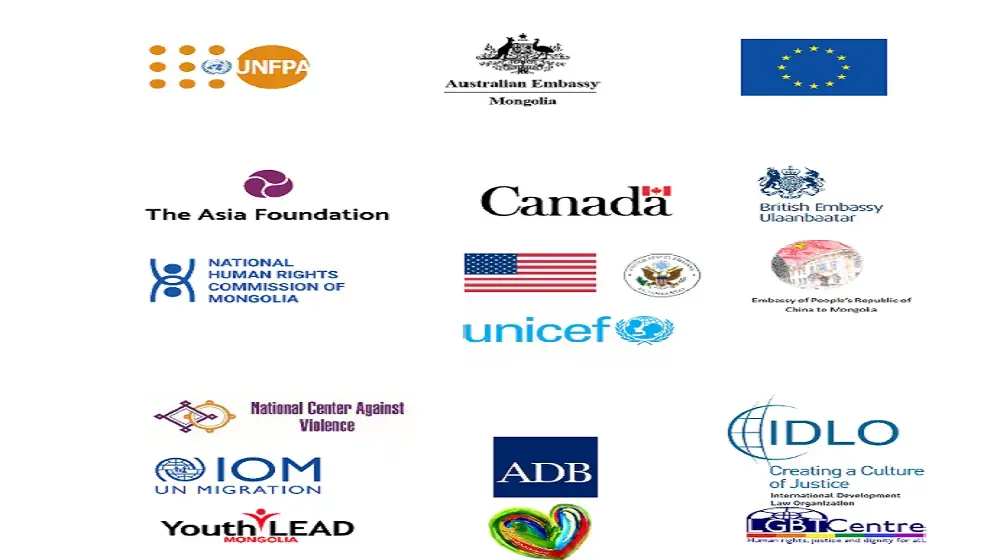Violence against women is one of the most pervasive human rights violations in Mongolia. Women’s stories of violence often remain untold and hidden from friends and family. That is, until recently.
In May of this year, the National Statics Office of Mongolia (NSO), with support from the United Nations Population Fund (UNFPA) and the Swiss Agency for Development and Cooperation (SDC), rolled out the country’s first gender-based violence prevalence survey – gathering the painful, often untold secrets of thousands of women.
“At the beginning [of the survey], it was so difficult for the women who were conducting the interviews,” explains Nyamka, a senior field researcher for the survey.
Nyamka is one of more than 90 field researchers that visited thousands of households across Mongolia to interview women who may have experienced some form of violence.
Conducting a survey of any kind in Mongolia is especially challenging – as this is one of the most sparsely populated countries in the world. The researchers are often away from their families for weeks, or even months at a time. During the gender-based violence survey, the researchers traveled nearly 350,000 miles, crossing rivers, deserts and remote terrain to reach households in every corner of the country.
Compounded with the vastness of Mongolia, as well as being away from loved ones, enumerators were covering the very delicate topic of interviewing women who experience violence.
“During the interview, any emotion can occur because we are asking very sensitive questions,” says Nyamka.
Each researcher interviewed, on average, three women per day, over the course of 40 days – totaling nearly 10,000 women interviewed.
While physically daunting in terms of the size of the survey, the heavy psychological burden carried by the enumerators is often described as their most significant challenge. Even with their extensive training, enumerators say that listening to the horrific stories of violence takes an emotional toll.
In one case, an enumerator was forced to ask dummy questions because the husband would not leave. But once he did, the veil was lifted.
“Then she told me everything,” the enumerator says. “I was listening to her and thinking that life can be daunting sometimes. I was deeply shocked when I left, my hands wouldn’t stop shaking, but I did all I could to pull myself together”.
The burden lifted
For the researchers in Mongolia, the benefits of the survey weren’t immediately apparent. They struggled to hear about the plights of women that seemed so similar to them.
As Nyamka mentioned, it was very difficult from the beginning. However, as they conducted more and more interviews, they began to understand how to help by listening.
“As the survey went on, we realized that we were never expected to be professional psychologists, but by listening we were supporting and comforting them,” Nyamka explains.
UNFPA’s regional advisor on violence against women, Dr. Henriette Jansen, says, “successful interviewing is an exchange of gifts; it involves our heart and an emotional response. This gift of having received untold stories and often painful secrets gives us, the researchers, the burden and responsibility to properly reflect the women’s experiences and the motivation to push for positive change.”
Data can make a difference
Having this data will enable key decision makers such as the government and partner organizations to create effective policies and allocate resources to combat gender-based violence.
While the process of interviewing women was one of Nyamka’s most significant challenges, she still has faith.
“We still worry about the women that are experiencing violence. It even hurts today. We never know what’s going to happen, but I believe that by doing this survey, we are now one step closer to ending the violence,” proclaims Nyamka.
As the data begins to come out, Nyamka says she would like to see the Government using the data to inform relevant policy, legislation, and strategies, as well as efforts on improving public awareness surrounding gender-based violence across the country.
The data findings will help to identify high prevalence areas where ten One Stop Service Centers for women and children who have experienced violence, will be established by the UNFPA-supported project.
These Centers provide accessible legal, health, psycho-social and police services to victims of domestic violence under one roof. Therefore, it prevents the survivor from having to travel to multiple sites to seek help and being re-traumatized. The hard work, faith, and hope of the enumerators in collecting the data will be transformed into action.
Story Credit: Carly Teng and Tim Jenkins, UNFPA
To get help
National Centre Against Violence Hotline - 6490505
Police - 102-107, 108
Support survivors through donations
Donations will help women and their children get back on their feet.
Donate here: http://unfpa-mn.org/
Contact
For media or donation inquiries, please contact Tim Jenkins, UNFPA Communications and Partnerships Officer. Telephone: 8011-0366; e-mail: jenkins@unfpa.org



